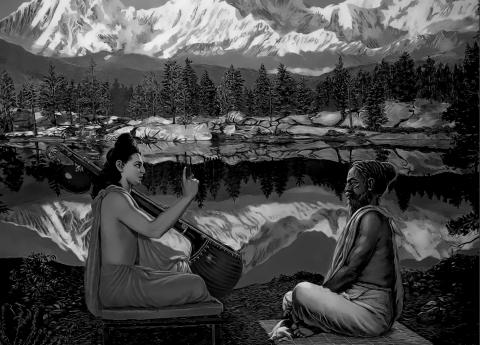
Introduction
dhyānābhyāsa-vaśīkṛtena manasā tannirguṇaṃ niṣkriyaṃ
jyotiḥ kiñcana yogino yadi paraṃ paśyanti paśyantu te ।
asmākaṃ tu tadeva locana-camatkārāya bhūyāc-ciraṃ
kālindī-pulinodare kimapi yan-nīlaṃ maho dhāvati ॥
dhyānāhbyāsadè tattvamaṃ hṛdayadoḻ tāṃ-ā nirākāramaṃ
kāṇalk-appoḍè kāṇge yogivarar-āṃ sāmānyar-èmmakṣig-ā ।
veṇu-svāna-sudhā-prasādi yamunā-kuñjodara-āmodi me-
ghānīla-dyuti nāṭyavāḍuge sadā nāṃ dhanyar-ā līleyiṃ...
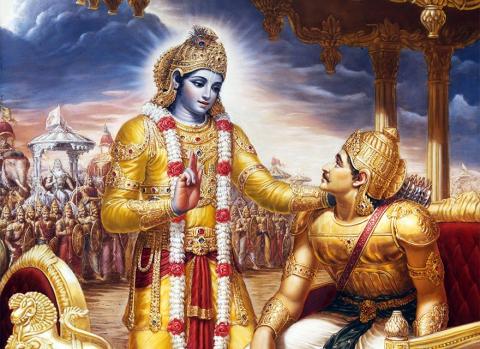
Śrī Kṛṣna was satisfied with this entreaty; Arjuna had been put on the path; his internal transformation was complete. Bhagavān felt certain that Arjuna was ready to perform the requisite deeds.
mā te vyathā mā ca vimūḍha-bhāvo
dṛṣṭvā rūpaṃ ghoram īdṛṃ mamedam |
vyapeta-bhīḥ prīta-manāḥ punas tvaṃ
tad eva me rūpam idaṃ prapaśya ||
BG 11.49
“Be free of worry and confusion. You were frightened because of the vision of my terrifying form...
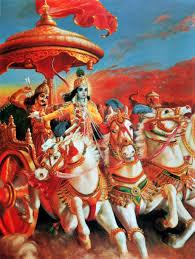
Here, by “divine eyes” we do not need to imagine a pair of extra-physical eyes with their own eyeballs and eyelids. It is enough to think that Bhagavān endowed the eye with the ability to behold divine effulgence. This is what we have to understand - when we pray to Īśvara for a boon, we need to ask for the requisite strength to bear and control the blessing. Our desires know no limits and make us forget what is suitable and what is not. If...
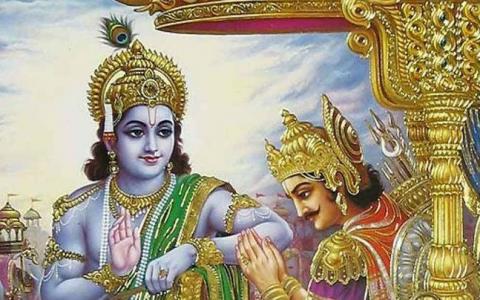
Introduction
āvudò viśvarahasyaṃ
jīvāṃgaṇakiḻidu janada sukhaduḥkheccā-|
dyāveśadi sahabhāgivò-
lāvirbhavisidudu kṛṣṇananènipa vicitram ||
This strange thing called Kṛṣṇa
a cosmic conundrum,
having entered the jīva’s playground,
Has manifested itself
As a partner to people
In their pleasures, sorrows and desires.
narano naradaurbalyava
pariharisalbaṃda viśvadaṃtassattvaṃ |
dharisida rūpo kṛṣṇaṃ
paramādbhutamenò namage satyaṃ śaraṇaṃ...
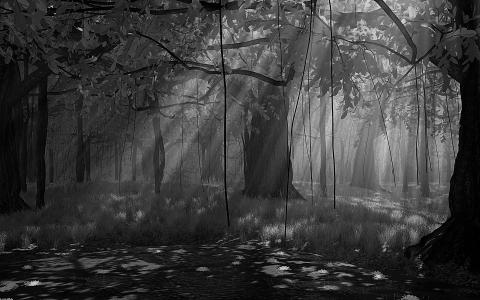
Arjuna’s mind is gaining maturity. Didn’t Bhagavān say –
dadāmi buddhi-yogam...
BG 10.10
What is buddhi-yoga? Buddhi is a faculty of the antaḥkaraṇa. Manas (mind), saṅkalpa (will), jñāpaka (recall) and other mental faculties hanker after so many external objects, collecting sensory information about them. The buddhi (intellect) gathers all these pieces of information under its purview, analyses them, classifies them, assesses their...

Note
nija-mahimeyan-īśaṃ tā-
n-ajan-avyayan-aprameya-navaviliptaṃ meṇ ।
tri-jagad-vyāptaṃ śaktaṃ
bhajanīyaṃ kāmyaneṃbudaṃ baṇṇisuvam ॥
Īśvara, the birthless, imperishable,
immeasurable, unattached,
pervader of all the three worlds, and powerful,
describes his own glory and
shows how he can be praised and loved.
Summary
Our freedom to discern must be used to gain the knowledge of Bhagavān’s nature, his non-attachment and omnipotence....
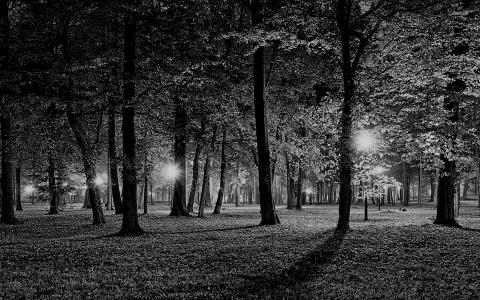
Those who follow the āsurī form of prakṛti delude and waste themselves.
moghāśā moghakarmāṇo moghajñānā vicetasaḥ
BG9.12
The rākṣasas are cruel and unscrupulous. For them, their bodies are their self and bodily pleasures are the greatest happiness. Naraka and repeated births in lowly creatures are their fate.
Bhagavān expounds upon this dual nature of prakṛti later in the sixteenth chapter.
How can man be liberated if he is being pulled...
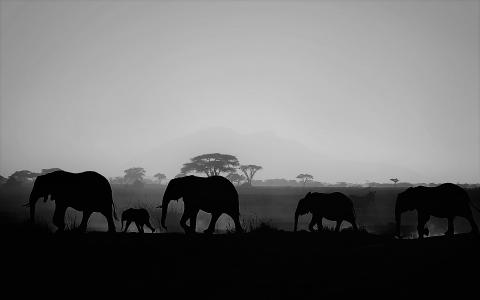
7. "Mamātmā bhūtabhāvanaḥ" : Brahma-consciousness is the cause of a jīva's rise and fall. The term bhāvanaḥ can variously mean birth, existence, sustenance, or control. Brahma has embedded the seed of Ṛta (Cosmic order) and dharma in human nature. Ṛta is the law in creation. "Deeds beget appropriate rewards and a jīva has to experience them" is the cosmic law of ṛta. The practical application of ṛta in life is dharma. Dharma and adharma result...

4. Now on to "na matsthāni bhūtāni". Was it not said earlier that matsthāni bhūtāni (all objects are in me)? But when we analyse reality, the objects do not exist in me; but only appear to be in me. Brahma is the substratum for that appearance. A traveller sees flowing water at a distance. But it is nothing other than a mirage. It is only a phenomenon; not an actual stream. That false appearance is created by a combination of sand, sunlight, and...

The two ślokas beginning with “Mayā tatamidaṁ” have the following seven points.
Mayā tatam-idam (All of this is pervaded or extended by me)
Mat-sthāni sarva-bhūtāni (All beings exist in me)
Na cāhaṁ teṣv-avasthitaḥ (I am not in them)
Na ca mat-sthāni bhūtāni (The beings are not in me)
Bhūta-bhṛt (The sustainer of beings)
Na ca bhūta-sthaḥ (Not in these beings)
Mamātmā bhūta-bhāvanaḥ (My Self constitutes the existence of beings)
There...
